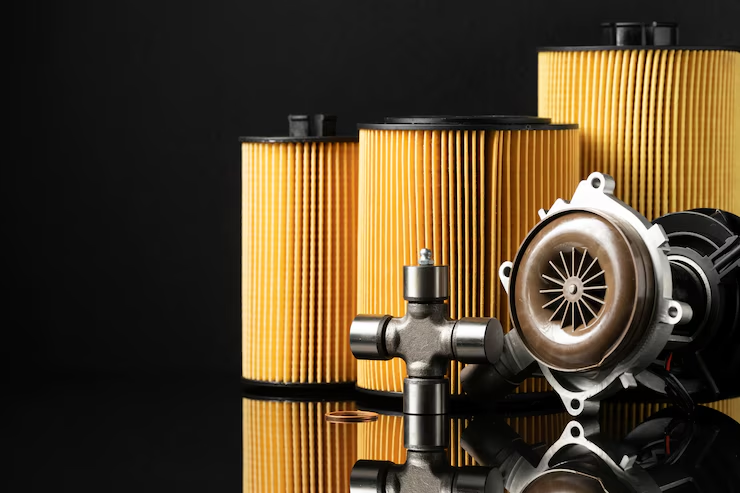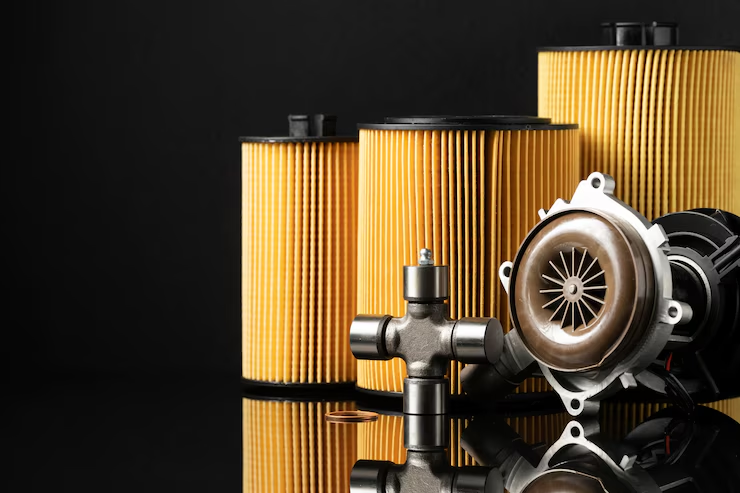Introduction
Air filters might seem like small insignificant components of your car but they play a vital role in vehicle performance engine longevity and fuel efficiency. The Role of Air Filters in Vehicle Performance Serving as the car’s first line of defense against contaminants air filters prevent dust debris and pollutants from entering the engine and cabin. Just like humans need clean air to breathe and function optimally your car needs clean air to run smoothly.
In this article well explore how air filters work their types the impact on performance. How often they should be changed signs of wear and why regular maintenance. Can save you time and money.
Understanding the Basics of Air Filters
an Air Filter
An air filter is a device made from pleated paper foam or cotton that captures and holds airborne particles. In a vehicle it ensures that only clean air reaches the engine or the cabin interior.
1Where Are Air Filters Located
There are typically two main types of air filters in modern vehicles
- Engine Air Filter Found in the engine bay, usually housed in a rectangular plastic box.
- Cabin Air Filter Located behind the glove box or under the dashboard it purifies the air entering the car’s interior.
Each filter serves a different purpose but both are essential to vehicle performance and passenger comfort.
Impact on Vehicle Performance
Clean Air Equals Clean Combustion

The engine needs a precise air to fuel mixture to ignite properly. A clogged or dirty air filter restricts airflow forcing the engine to work harder. Which reduces efficiency and power output.
Performance and Horsepower
When airflow is restricted the engine gets less oxygen. This reduces the efficiency of fuel combustion. Lowering horsepower and acceleration. Performance engines especially turbocharged or high rev models are even more sensitive to air intake quality.
Fuel Efficiency
A dirty air filter makes your engine less efficient. Which leads to increased fuel consumption. Studies show that replacing a clogged air filter can improve fuel mileage by up to 10%.
Emissions and Environment
An engine starved of clean air burns fuel less completely. Which can increase carbon monoxide and hydrocarbon emissions. This not only harms the environment but can cause your vehicle to fail emissions tests.
Health and Comfort
Filtering Harmful Particles
Cabin air filters clean the air that passengers breathe. They trap pollen mold spores dust and even exhaust fumes. This is especially important for people with allergies. Asthma or other respiratory conditions.
Reducing Odors
High quality cabin filters can reduce unpleasant smells from the outside such. As smog or diesel exhaust making the driving experience more pleasant.
Enhancing HVAC Efficiency
A dirty cabin filter can restrict airflow through the HVAC system causing your air conditioning or heating to work harder. This increases wear and reduces system efficiency.
Types of Air Filters
4Paper Air Filters
Most common and cost-effective. Disposable and typically found in factory settings.
Pros Cheap widely available
Cons Single use less airflow than performance filters
Foam Air Filters
Used mostly in off road vehicles due to their durability and higher dust retention.
Pros Reusable after washing good in dusty environments
Cons May need frequent cleaning
Cotton Gauze Filters
High performance filters (e g K&N) made of multiple layers of oiled cotton.
Pros Excellent airflow reusable long lasting
Cons More expensive require proper cleaning and oiling
Activated Carbon Cabin Filters
Include a layer of carbon to filter out odors and harmful gases.
Pros Improved air quality odor reduction
Cons Higher cost than basic cabin filter
Often Should You Replace Your Air Filters
Manufacturer Recommendations
- Engine Air Filter Every 15000 to 30000 miles or once a year
- Cabin Air Filter Every 12000 to 15000 miles or once a year
Influencing Factors
- Driving in dusty or polluted areas
- High traffic or frequent idling
- Allergies or respiratory concerns
Visual Inspection
Hold the air filter up to light. If light doesnt pass through easily or its dark and dusty its time for a change.
Signs You Need a New Air Filter
Engine Air Filter Symptoms
- Reduced acceleration
- Lower fuel economy
- Rough idling or engine misfires
- Check engine light
- Unusual engine sounds
Cabin Air Filter Symptoms
- Weak airflow from vents
- Musty odors inside the cabin
- Increased allergy symptoms
- Foggy windows (due to poor ventilation)
Replace Air Filters
Replacing the Engine Air Filter
Open the hood.
Locate the air filter housing (usually a plastic box with clips).
Remove the old filter.
Clean out the housing with a cloth.
Insert the new filter in the same orientation.
Close and secure the housing.
Replacing the Cabin Air Filter
Locate the filter (check your owner’s manual).
Open the compartment.
Slide out the old filter.
Clean the housing.
Insert the new filter (observe the airflow direction).
Close the compartment.
Air Filter Maintenance Tips
For Engine Filters
- Do not tap or shake filters to clean them it can damage the media.
- Use compressed air (carefully) only on reusable filters.
- For oiled filters, never over oil it can damage your MAF sensor.
For Cabin Filters
- Use a vacuum to remove leaves or debris near the intake.
- Replace with activated carbon versions for better odor control.
Are High-Flow Filters Worth It
Increased Horsepower
High flow air filters promise better airflow and small horsepower gains. While dyno tests often show modest improvements benefits are more noticeable in high performance or turbocharged engines.
Long Term Savings
Reusable filters may cost more upfront but save money over time since they can be cleaned and reused multiple times.
Cautions
Improper cleaning or over oiling reusable filters can damage engine sensors especially in modern vehicles.
The Economic and Environmental Benefits
Cost Savings
Replacing a $20 air filter can improve fuel efficiency saving hundreds per year depending on mileage and fuel costs.
Longer Engine Life
Clean air reduces internal engine wear protecting pistons valves and cylinders from abrasive particles.
Reduced Carbon Footprint
Cleaner combustion from a good air filter means fewer emissions and better environmental responsibility.
Real World Benefits of Air Filter Maintenance

City Driving
In high pollution areas like Karachi or Lahore filters clog faster. A taxi fleet in Lahore saw a 9% fuel efficiency boost after switching to higher grade engine filters.
Off Road Vehicles
Jeeps and SUVs in dusty areas benefit from foam filters that handle heavy particulate loads without frequent replacement.
Allergy Relief
Cabin filter upgrades reduced allergy symptoms for a rideshare driver in Islamabad earning higher customer ratings and personal comfort.
Air Filters Dont Affect Performance
Many drivers believe that air filters are only about keeping the air clean. While that’s true, they also have a direct impact on performance. Clogged filters restrict air and less air means less power and efficiency.
You Can Go Years Without Changing Air Filters
Some car owners think filters last forever. In reality environmental conditions driving style and mileage heavily influence how quickly a filter becomes dirty. Ignoring filter maintenance shortens engine life and increases running costs.
Myth All Filters Are the Same
Air filters differ in quality material and filtration capacity. Using a low quality filter may save money upfront but can lead to costly engine repairs in the long run.
Choosing the Right Air Filter for Your Vehicle
OEM vs Aftermarket Filters
- OEM Filters Designed specifically for your vehicle. They offer reliable fit and performance.
- Aftermarket Filters Can vary widely in quality. Some are excellent (like Bosch Fram) while others may be substandard.
Performance Filters
Performance filters are suitable for sports cars or those wanting slight gains in throttle response. Brands like K&N or AEM specialize in high flow filters that support tuned engines.
Environmental Filters
In areas with poor air quality or dust opt for dual layer or electrostatically charged filters which capture finer particles and allergens.
Environmental Impact of Disposable vs. Reusable Filters
Disposable Filters
Most paper filters are single use. Over a cars lifetime this could add up to dozens of filters contributing to landfill waste.
Reusable Filters
Though more expensive upfront reusable filters can be cleaned and reused for years. This reduces waste and long term costs.
Conclusion
Air filters are the lungs of your vehicle. A small investment of time and money can lead to better performance improved fuel economy cleaner emissions and healthier cabin air. Whether youre a daily commuter or an off road enthusiast air filter maintenance should be a priority in your car care checklist.

